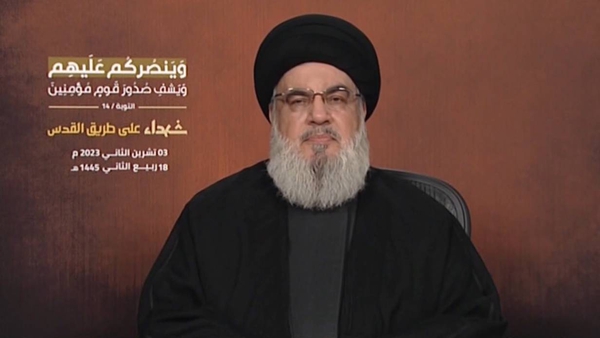Irish cross-border scientific and academic collaborations should be revived following the agreement reached between Brussels and London over the UK's access to the European Union’s multi-billion euro Horizon Europe research and innovation fund, according to British sources.
The UK had been frozen out of the €95.5 billion fund after it unilaterally threatened to tear up the Northern Ireland Protocol, which provided for an open land border on the island of Ireland following Brexit.
After the Windsor Framework agreement was reached in February, which removed friction between Brussels and London over Northern Ireland, both sides resumed negotiations on the UK becoming an associate member of Horizon Europe.
Under the political agreement reached by both sides today, British universities will immediately be able to bid for funding for research projects and to resume collaboration with European universities, including Irish ones.
The British taxpayer will contribute €2.6 billion per year in order to participate in Horizon.
Negotiations between February and this month were held up by UK demands that it be reimbursed if London put in more money that British researchers took out.
Under the agreement, the UK will not pay anything for the first three years of the Horizon Europe programme, which runs from 2021 to 2027, since British universities were not directly accessing the funds.
The UK will also automatically get a claw back if it puts in 16% more than it takes out.
Under the initial arrangement, any reimbursement was subject to discussions under the EU-UK Partnership Council, which supervises relations between Brussels and London post-Brexit.
University collaborations between Irish and UK centres of learning have been funded by both governments.
However, several cross-border research projects have relied on Horizon Europe for long term and secure funding.
UK officials say the uncertainty surrounding such projects should now come to an end.
The EU is a global leader in Research & Innovation. #Horizon is critical to preserve technological edge.
— Ursula von der Leyen (@vonderleyen) September 7, 2023
Today's political agreement on the UK’s participation in Horizon Europe and Copernicus will strengthen science across the whole of Europe.
Looking forward to meeting…
The agreement was welcomed by Fine Gael MEP Sean Kelly, who is vice chair of the EU-UK Parliamentary Partnership Assembly.
"EU member states and the UK have developed deep-seated research and innovation partnerships over three decades of framework programmes and are aligned in their vision and values for science, translation, and impact. It makes complete sense to continue this mutually beneficial partnership.
"In a global race for strategic technologies, we must work with our closest and aligned partners. Global heavyweights such as China and the US are continuing to increase their investment in research and development," he said.
The UK will also rejoin the EU's Copernicus programme, which monitors the Earth from space and is regarded as an important contributor to knowledge about climate change.
Horizon Europe aims to deepen research collaboration between EU and other countries in order to tackle the global challenges of the age, such as health crises and climate change.
UK researchers will be entitled to bid for funding, start new collaborations with EU centres of excellence, and to resume joint research activity, which may have been running for decades, but were interrupted by Brexit.
Between 2014 and 2020, Irish researchers won €1.2 billion in Horizon funding.
"Today's political agreement on the UK's participation in Horizon Europe and Copernicus will strengthen science across the whole of Europe," European Commission President Ursula von der Leyen said on social media.
Professor Luke O'Neill, Chair of Biochemistry at Trinity College Dublin, and a member of the governing board of the European Reserach Council, welcomed today's developent.
He told RTE News: "This is tremendous news. It effectively means that UK science has rejoined the EU.
"The UK is home to some of Europe's best scientists who will now be able to access funding and collaborate with EU scientists as before, which is so important for the scientific endeavour."
The UK said that it had decided not to align with the EU's Euratom programme, instead choosing to pursue a domestic fusion energy strategy.
Additional reporting PA






